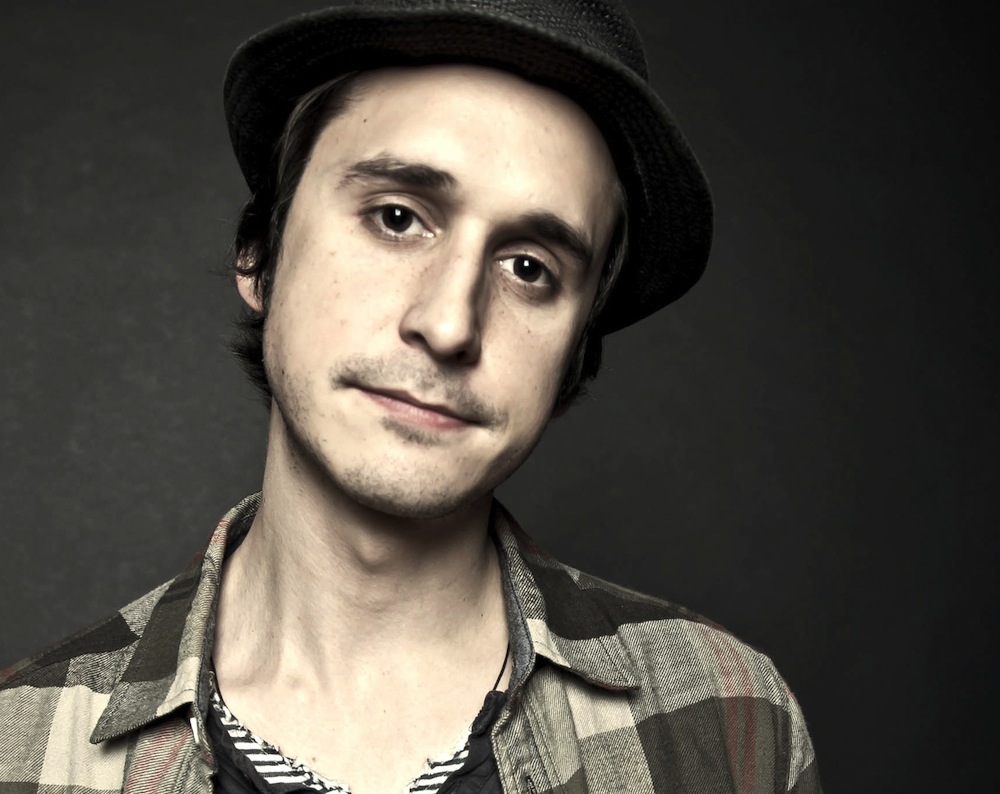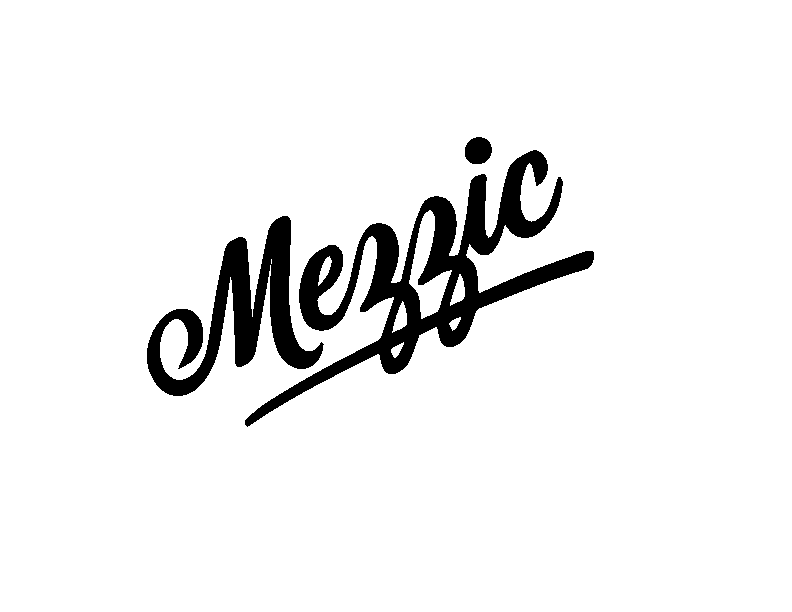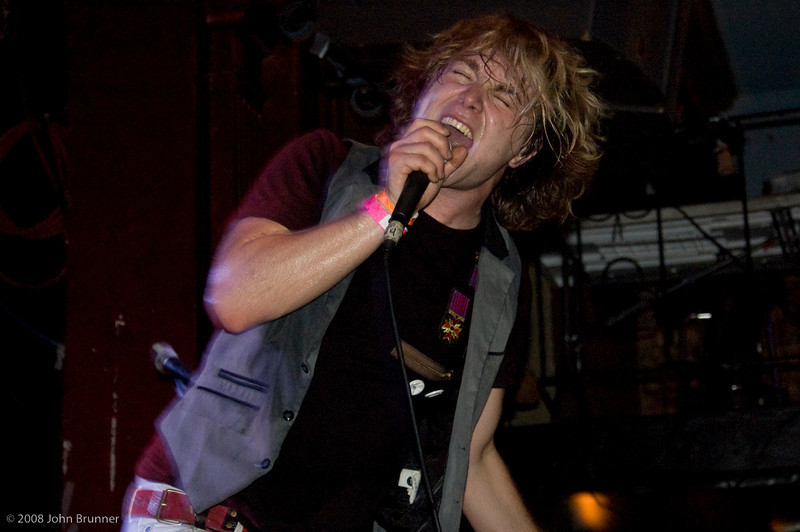
INTERVIEW: MATTHEW SANTOS (CHICAGO)
From time to time we all experience those moments of synchronicity. My most recent experience with this was meeting Matthew Santos backstage at a show in Chicago. I knew of Santos, and his work with Lupe Fiasco, on songs like “American Terrorists” like the Grammy nominated “Superstar” to name a few. More recently Santos is featured in collaboration with Doomtree member, Dessa on her song, “The Chaconne”, off her album, Castor, The Twin. This Minneapolis native is so much more than a singer-songwriter that makes guest appearances. Santos recently released his third full album, Quickly Disappearing on Candyrat Records, and is about to embark on tour. Chicagoans can catch Santos Thursday, March 15th at Schuba’s Tavern, before he embarks on his West Coast tour. The Grammy nominated artist, and Chicago resident found some time to sit down with me over coffee to discuss his new album, what its like to be nominated for a Grammy, and Jeff Buckley.
You are Minneapolis born and raised, what brought you to Chicago?
Originally Columbia College, they had a great music program, and they didn’t require a high SAT or ACT score so it was kind of perfect for me. I always thought I was going to go into visual art, but ironically I was going to a visual arts school when I was in high school for a semester. That is when I started playing guitar and singing more. That is what got me to change my path into music, and Columbia seem perfect.
Did you study music performance?
Performance and composition. I didn’t end up graduating. I dropped out in ’06 and took a soul-searching trip to Alaska, and that changed my life after that. I was with my brother from another mother. The only person I know who would be down with something like that.
Did you encounter Alaskan wilderness?
Yes. A family of grizzlies, herds of caribou, some moose, a white wolf. It was in the wild.
The Palins?
(laughs) The Palins. Yes, that was the scariest part. I was really an amazing trip. Everything was just beautiful, otherworldly beautiful, untouched.
Was that what inspired you to come out with your first EP?
Not the first one. Actually the latest one, Quickly Disappearing drew more inspiration from that trip. Mainly because the effects of global warming were so apparent when we where there. There was this famous glacier that we went to see, that took us this whole day to hike up this mountain valley and we finally got there and there was nothing left. There was this barren rock and dirt, with some snow. At the time we thought, it must have been just a warm summer or something, but it turns out it’s not a dying trend. The whole trip was very eye-opening. There was two things I missed, one of them was hot meals in my bed, together. The other was music. So it was very apparent to me at that point that this is what I’m here to do. Eat Ramen in my bed, and play music.
In 2006 you also were featured with Lupe Fiasco in a few songs. Did you already know him through the Chicago music scene?
I met him through a mutual friend who owns a studio called, The Attic. I was recording my EP, As A Crow Flies, and he was recording his first full length called, Food & Liquor. So he heard some of my stuff, and I heard some of his stuff and we were just jiving. We both had a mutual respect for each other, and he asked me to be on Food & Liquor, that got a great response. Then there was The Cool, and we got the “Superstar” thing going. That is a trip in itself.
So you go to Alaska, come back to Chicago, and make an EP. You do some jamming with Lupe, and then you get a call that you’re nominated for a Grammy.
It was a weird progression. It was crazy because I went from playing 15-30 person clubs with my solo acoustic vibe, and slowly expanding with a band. Then to playing United Center with Lupe, opening for Kanye and Rihanna, there was no progression, it was a leap. All of a sudden I’m in front of 30,000 people. Which is a lot less nerve-racking than it seems, because there is such a disconnect, you can’t see anybody. There is just this ocean of people who you know that are there. But I get more nervous playing in font of 10 people, to be honest with you.
What was it like with that journey from “Superstar” being on Letterman and other t.v. shows. At that point did you feel like you were going to go in a different direction with your solo music?
I did take it all for granted. I always kept in my heart that the music I wanted to make, I never lost sight of it. It’s sort of the reason I left Lupe Fiasco’s label. It just wasn’t harmonious with my own creative vision. So once the contract expired, we just went our own ways. I never lost sight of what I wanted to do musically and artistically. I guess if I had been more open to making pop music, I’d probably be much more successful, as some people would call it, or wealthy. Pop music isn’t really my thing, my forté, it’s not what inspires me. Fame and fortune is not the driving force behind my music. So after the whole Lupe thing, I came back to Chicago to get grounded, and I finally feel like I’m back on track, and making good music that I want to make. It’s been a long road, it’s been constant touring, and breaking small markets one by one. Just by going there playing for 10 people, the next time there is 20, then 30. It’s a long, hard road, but it’s so much more fulfilling. I’d rather be doing this than riding the coattails of Lupe Fiasco. The one this I do miss is the energy of hip-hop shows.
Do you find that there is difference reception than when you play an acoustic show, than when you play with your band?
When I’m playing with the band I can’t no worry about everyone making sure their parts are straight. It’s just a lot more stress, the whole process of setting up and tearing down. It’s a lot more fun because you get to interact with other musical forces. But at the same time I’m worried. I’ve always gotten a better response as a solo artist, I think it’s because it’s more clear and direct. People always say it touches them on a deeper level, which I think is encouraging. Even with solo performance I’m doing a lot of beat-boxing, loop pedal stuff, and a lot of effects. It’s not just a guy with a guitar strumming folk songs.
You’ve been recording with The Attic Studio with Greg Magers (G-Ball) since your first recording?
For the most part, ever since my first recording in Chicago. I was working with his [Greg’s] roommate at the time, Lance. Lance was learning the ropes of Pro-Tools at the time. But Greg had a firmer grasp on how to use the Pro-Tools software for recording. So once Lance sort of opted out I started working with Greg. I developed a really close bond, friendship, and partnership within the music. He’s such an amazing engineer. I call him Gandolf the Great, because he’s like a wizard. I have a hard time going anywhere else, because I’m so spoiled. I can give him the most abstract idea on how to filter the sound, and he just knows it, it’s incredible.
Your most recent feature was with Dessa, on “The Chaconne”. Did you know her through your Minneapolis days? Did she ask you to do the song with her?
We went to the same high school, and I met her through my brother. So we developed a very special friendship and bond. She’s always been a very special person to me. I have nothing but the utmost respect for her. She had a couple of tunes in mind, “The Chaconne” was one of them. We just got together, went to the studio, and did it up.
Quickly Disappearing is your third full length studio album. How would you compare it to your last album, The Burning Ship Of Fools?
Quickly Disappearing was a return to my roots as an artist, and as a human being in general, reestablishing my core values. This one has more of an environmentally conscious theme. The whole production process was more environmentally conscious. The songs are inspired about environmental issues, global warning and what not. The title was inspired by the disappearance of the polar ice caps that are melting, and that is going to affect our global eco-system. In Columbia College I was studying a lot of tango and this composer from Argentina had this neo-tango thing going on. So that’s all I wrote in composition class was this acid-tango. Theres a tune called “Nvr Lkd So Fin” off the record that is completely int he style of tango. The lyrics, the story, the production, the vibe, everything is tango.
Songs like, “Shallow Grave” gets back to more of my rootsy, blues,folk-rock influences. A vocal hero of mine, Kavita Subramaniam, she’s a famous Bollywood singer. I met her through her husband, who is another hero of mine. Dr. L.Subramaniam he’s an Indian violinist. He did this album called, Global Fusion, this is the record that has gotten the most spins out of every record I own. It’s transcendental, spiritual music, not spiritual like Christian rock. It just brings you to a whole other level of awareness, and it gave music a different value to me. The way it touched me was, my god this is the power of music. Music has the power to inspire indescribable things within us, and help us comprehend the universe the ways we never imagined. She [Kavita] was featured on a song on that record and her voice just blew me away. I’d never heard anything like it before. When we were recording this record, she happened to be in town. I asked if she would come in the studio. She came in, 45 mins and laid down her shit and was out. It was like working with Elvis. She’s this creative force of music that walks.
The bonus track on the Burning Up single, “Before You Go” is really haunting and reminiscent of Jeff Buckley.
He was one of my biggest influences. Strangely enough the first recordings I did was in Minneapolis in like 2000, and the recording engineer mentioned I sounded just like Jeff Buckley. At the time I hadn’t heard of Buckley. It wasn’t until 2001, when I came to Columbia College that someone showed me the album, Grace. That just sealed the deal. I couldn’t help but really get into his approach for music, so Grace is a cornerstone in my development. Funny story actually, I did a cover of “Hallelujah” by Leonard Cohen, his [Buckley’s] mother heard it [Mary Guibert] on YouTube and she reached out to my manager and said that she hadn’t heard a better version of “Hallelujah” since Buckley. Then she’s like, “I want you to try out for the movie.”. So I started doing nothing but Jeff Buckley research. I started growing my hair out, and I started revisiting his repertoire. It’s really strange because all throughout my career everyone said that I sounded just like Jeff Buckley. I take that as a compliment but at the same time you don’t want to be a reincarnation of another artist. Just like he did not want to be a reincarnation of his father. I got this movie offer, and I had to dive head first into everything that is Jeff Buckley. I didn’t get the part, Reeve Carney, Spiderman from Broadway got the part.
“Just To See You” is another one of those beautifully, haunting songs on Quickly Disappearing. You have this connection when you play the piano. Do you feel more connected when you play songs like that on the piano, or when you play songs like that on the guitar?
I first started playing songs on the pianos. There is such a grandeur to the piano. It’s hard to say whether I feel more connected to the piano, than the guitar, because I don’t play the piano as much as I play the guitar. I don’t get the play the pianos as much as the guitar, I don’t have the opportunity to. I think as an instrument all together, it’s much more beautiful, and inspires me so much more.
Do you have any advice to the kids that want to put out their own music?
It’s a lot easier these days for kids to just invest in the home recording kit and just experiment as much as your time permits. Going into the studio is awesome, you get quality recording, engineers, all these instruments are available to you, but you pay $500 for a day in the studio. If you do it by yourself you have the ability to create whatever you imagine. Write as much as you possibly can, explore all your creative outlets, and soak things up like a sponge. Always strive to realize your potential as an artist. I think it’s easy to lose the spark, the inspiration that makes you unique and special as an artist. It’s easy to see whats popular and try to conform to that direction of things. Obviously you want to be successful and well received, but it’s more important to hold on to what keeps you unique. It seems obvious to say, but you’d be surprised at how easy it is to lose that.
Founder, Editor, Writer, Photographer. (Austin, Texas)



Post a comment